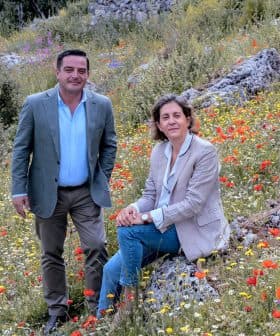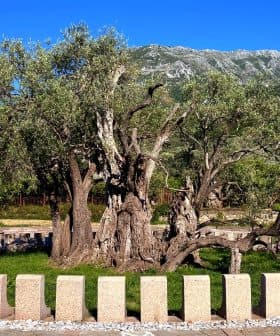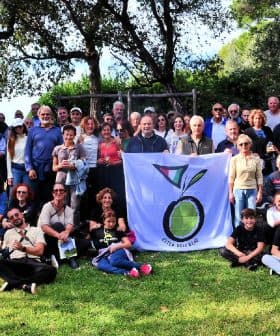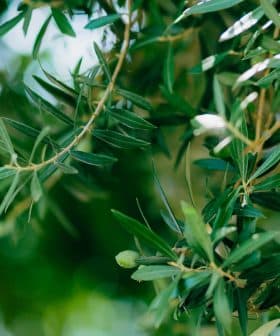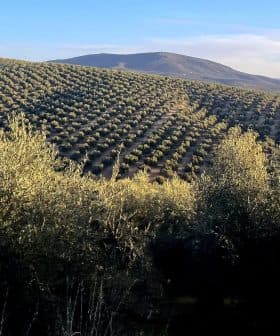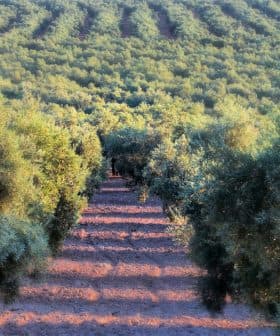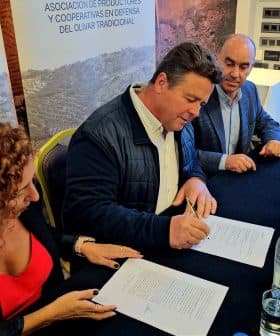UNESCO May Yet Give Andalusian Olive Trees Heritage Status
In Spain, local and national institutions and the whole local olive oil sector have met to get the prestigious UNESCO candidacy of Andalusian olive groves back on track.
The commission promoting the Olive Grove Landscapes of Andalusia is working to resolve a bureaucratic issue in order to move forward with their UNESCO World Heritage Site candidacy. Various agricultural associations in Andalusia are concerned that listing the olive groves in the Andalusian Historical Heritage catalog will impose new restrictions that could limit farmers’ ability to conduct business, but the Ministry of Culture and the Junta de Andalusia are considering removing this requirement to address these concerns.
The commission promoting the Olive Grove Landscapes of Andalusia has met to solve a bureaucratic roadblock that emerged last week. The commission has been trying to make the olive groves a UNESCO World Heritage Site.
Olive farmers, associations, universities, cultural organizations and regional and national authorities are attempting to determine whether the UNESCO candidacy can move forward without listing the olive groves in the Andalusian Historical Heritage catalog.
The listing is currently included as one of the steps needed to support the candidacy, upon which UNESCO should vote sometime next year.
See Also:Spain’s Sea of Olives Among the Candidates for UNESCO RecognitionThe Andalusian branch of the Young Farmers Association (ASAJA), The Coordination of Farmers and Ranchers (COAG) and the Agri-food cooperatives warned the inclusion of olive farms into the Andalusian catalog would necessitate a new legal framework. That framework, in their view, would limit free enterprise and farmers’ ability to conduct business.
Many new restrictions will come into effect if olive groves are listed in the Andalusian catalog. These include the registration of the listed site in the property registry; an obligation to preserve, maintain, guarantee and safeguard the listed site; mandatory conservation projects; the right of the Ministry of Culture to conduct inspections; a required avoidance of visual and perceptive contamination of the landscape and farmers’ obligation to notify the proper Ministry upon the completion of any project or intervention.
According to the three associations, the affected groves are farms“whose good private management by their farmers not only allows their survival but also constitutes the basis of the economy of an entire agri-food sector that is, in turn, the main source of wealth and employment for more than 400 municipalities in Andalusia.”
Additionally, the three associations underlined that they had supported the UNESCO candidacy since it was proposed in 2017. They will continue to support it if the Andalusian catalog listing or its implications are avoided.
As reported by Viva Jaén, during the online meeting, which was triggered by the farmers’ objections, the Deputy Minister for Culture in Spain, Ángel Vera, confirmed that the Ministry of Culture and the Junta de Andalusia would soon express an opinion about removing the requirement for the farms to be listed in the Andalusian catalog.
“Should this be done, one of the main demands of the appeal presented by the agrarian organizations would be addressed, and farmers would be guaranteed the compatibility of the protection of this cultural heritage with the uses of the farms and the right to property,” Vera said, as reported by Viva Jaén.
According to Francisco Casero, president of the National Savia Foundation, dedicated to bringing back value to rural areas, a withdrawal of the olive groves’ UNESCO candidacy would represent a “historical error.”
While speaking with El País, he noted that “they cannot be thrown overboard eight years of work to value a cultural landscape with 180 million trees that is unique in the world.”
“The integration of olive trees into the landscape, the diverse landscapes where olive trees grow, in addition to the economy and lifestyle of populations throughout history, have led to the accumulation of a wealth of culture and a number of indications that this tree, its fruit (the olive) and its oil are amongst the defining features of the landscape,” a UNESCO note cites, detailing the candidacy.
Should the UNESCO candidacy succeed, the Andalusian groves would become Spain’s 49th World Heritage Site.
Share this article



